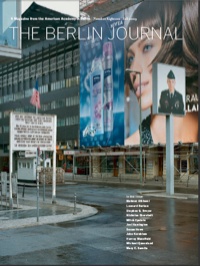The 12th International Forum of the Association for Women’s Rights in Development took place in Istanbul in October, 2012, where Mahnaz Afkhami spoke on conservative religion, political regimes, and women’s rights in the MENA region.
Tag: Islam
Women Could Promote Rights Through Islam
US News & World Report interviewed Mahnaz Afkhami and Melanne Verveer on Muslim values and women’s rights. While some places in northern Africa have seen gains in women’s rights, Afkhami cautions that progress can be revoked under conservative leadership.
Reflections on Women’s Security in Iran
The late Mhabub ul Haq, the founder of the UN Human Development Report, captured the essence of human security when he said, and I quote, “In the last analysis, human security means a child who did not die, a disease that did not spread, an ethnic tension that did not explode, a dissident who was…
CNN's Amanpour: Panel Discussion with Activists on Women's Rights in the Middle East
For International Women’s Day, Mahnaz Afkhami is interviewed by CNN’s Christiane Amanpour on a panel of women’s rights activists. Afkhami discusses the importance of including women in political positions, the progress made in the Middle East, and hope for the future. Afkhami states: “There are many, many more women in power, in politics, in high-value…
Freedom Leads to Empowerment: Promoting Women's Leadership and Financial Independence
Women’s empowerment is a process. It involves raising consciousness, building skills and reforming unjust laws that limit women’s education, participation in decision making and economic independence. I.M.O.W. Global Council member Mahnaz Afkhami is president of Women’s Learning Partnership, which strives to empower women by practicing and promoting their leadership and self-sufficiency. The United Nation’s International…
Iranian Women Campaign To End Discriminatory Laws Against Them
VOA News interviews Mahnaz Afkhami on Iran’s One Million Signatures Campaign, which seeks to change discriminatory laws against women. “Afkhami says the activists and their followers are extremely resilient, courageous, and inventive. ‘The reason the world heard so much about what was happening in Iran during the election is because of the sophisticated use of…

A Beaten Path
At the time of the Constitutional Revolution of 1906, Iran was a society organized on precepts that for centuries has defined the subordinate position of women as the natural order of things. The nascent civil society faced the issue of women mostly as a problem between traditionalism and modernism. But as the moderns grew in…
Women, Rights, and Security in Iran
Women in Iran must be free to choose what to think, what to say, what to do, and, of course, how to relate, or not to relate, to God In the past, human security was defined mainly in terms of state security. A half-century of international dialogue on rights, development, and peace, however, has led…
